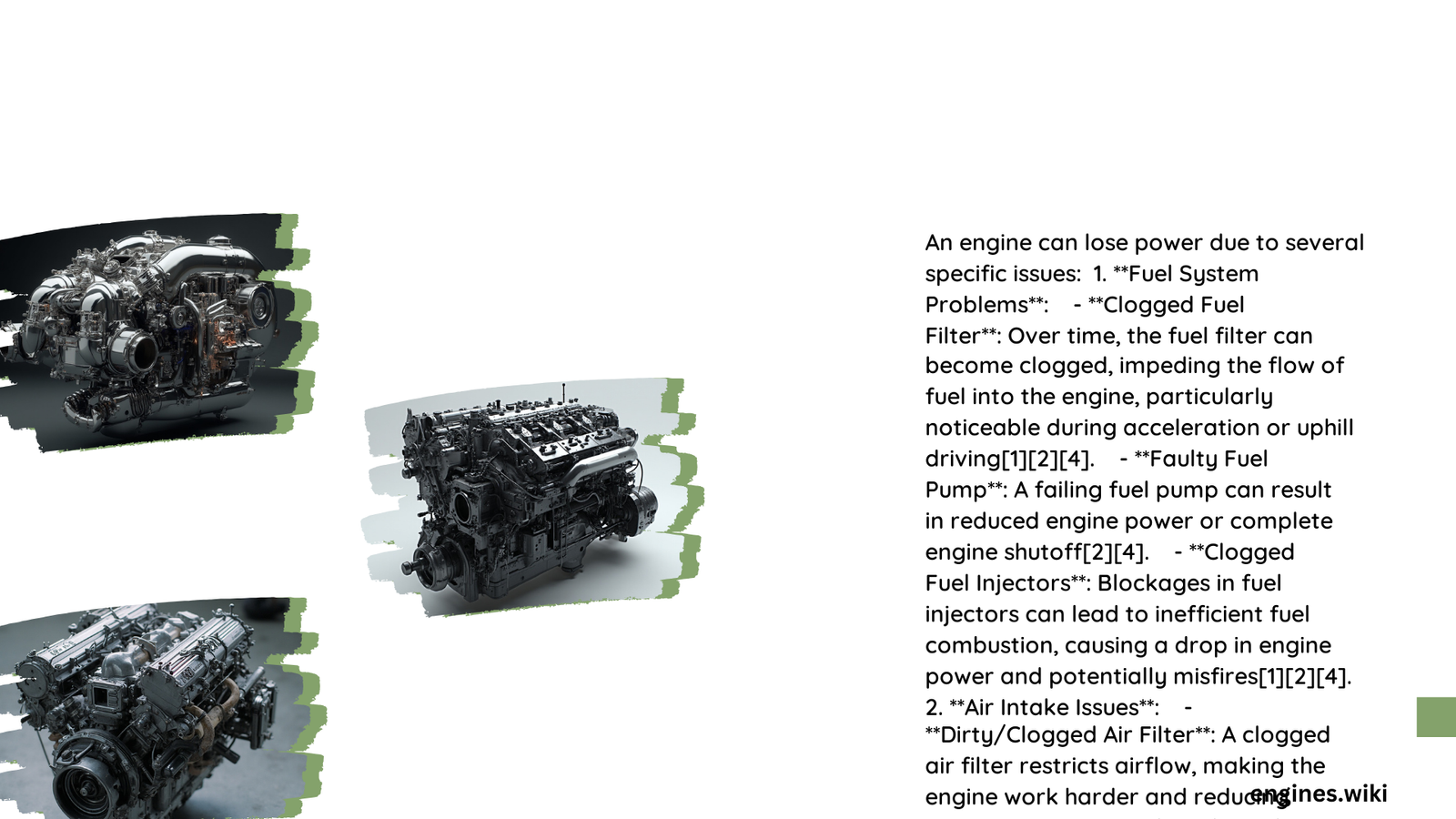Modern vehicle engines can experience power loss due to multiple interconnected mechanical and electrical factors. When an engine loses power, it signals potential underlying issues that require immediate attention. From fuel system complications to mechanical wear, understanding these symptoms can help vehicle owners diagnose and resolve performance problems before they escalate into more expensive repairs.
What Causes Fuel System Performance Degradation?
How Does Fuel Pump Pressure Impact Engine Power?
A compromised fuel pump can dramatically reduce engine performance. Key indicators include:
- Pressure below 30-40 PSI
- Inconsistent fuel delivery
- Reduced acceleration capabilities
| Fuel Pump Pressure Range | Performance Impact |
|---|---|
| 0-20 PSI | Severe Power Loss |
| 20-30 PSI | Moderate Performance Reduction |
| 30-40 PSI | Optimal Performance |
What Role Do Fuel Filters Play in Power Maintenance?
Fuel filters act as critical guardians of engine performance. When clogged, they:
- Restrict fuel flow
- Reduce fuel system efficiency
- Compromise combustion quality
How Can Spark Plug Conditions Affect Engine Output?
Spark plugs are precision components that directly influence combustion efficiency:
- Incorrect gap settings (0.028-0.060 inches)
- Worn electrode surfaces
- Carbon buildup
- Inconsistent electrical discharge
What Mechanical Factors Contribute to Power Loss?

How Do Air Filters Impact Engine Breathing?
Air filters prevent contaminants from entering the engine while enabling crucial airflow. Symptoms of a compromised air filter include:
- Reduced acceleration
- Decreased fuel efficiency
- Rough engine idling
Can Exhaust System Restrictions Cause Performance Decline?
Exhaust system health is crucial for maintaining optimal engine performance:
- Back pressure above 2.5 PSI indicates potential blockages
- Catalytic converter restrictions
- Muffler or pipe damage
- Oxygen sensor malfunctions
Diagnostic Recommendations
What Maintenance Practices Prevent Power Loss?
- Regular fuel system inspections
- Scheduled spark plug replacements
- Consistent air filter maintenance
- Comprehensive exhaust system evaluations
When Should Professional Diagnostics Be Considered?
- Persistent power loss
- Unexplained performance fluctuations
- Check engine light activation
- Unusual engine sounds
Technical Insights
Engines operate as complex systems where multiple components interact. Power loss often results from cumulative minor issues rather than a single catastrophic failure. Proactive maintenance and early problem detection are key to preserving engine performance and longevity.
Recommended Diagnostic Approach
- Use professional diagnostic tools
- Perform systematic component testing
- Document performance changes
- Consult manufacturer specifications
Conclusion
Understanding what can cause an engine to lose power requires a holistic approach. By recognizing early warning signs and maintaining regular service intervals, vehicle owners can prevent significant performance degradation and costly repairs.
